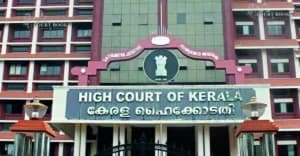The Supreme Court of India has officially dismissed a review petition filed by Advocate Dr. Khem Singh Bhati, which had sought the confiscation of funds—totaling ₹16,518 crore—donated to political parties under the Electoral Bonds Scheme, previously declared unconstitutional.
This move reaffirms the apex court’s earlier decision dated August 2, 2024, wherein it had ruled that confiscating the funds was not within its jurisdiction under the context of the original petition.
A bench led by Chief Justice Sanjiv Khanna, along with Justices J.B. Pardiwala and Manoj Misra, reviewed the petition but found no sufficient ground to overturn or reconsider the previous ruling.
Quote from the March 26, 2025 order: "Having gone through the review petition and also the documents enclosed, we do not find any good ground and reason to review the order dated 02.08.2024."
This statement clearly reflects the court's view that the petitioner did not bring forth any new arguments that warranted a review.
The request for an oral hearing in open court was also turned down, and the delay in filing was formally condoned, indicating procedural leniency but a firm stance on the substance of the matter.
Background: The Electoral Bonds Controversy
The Electoral Bonds Scheme, introduced in 2018, had enabled anonymous donations to political parties. However, in a landmark verdict on February 15, 2024, in the case Association for Democratic Reforms v. Union of India, the Supreme Court declared the scheme violative of Article 19(1)(a) of the Constitution, which guarantees the right to freedom of speech and expression.
This ruling also invalidated several legislative provisions across the Representation of the People Act, 1951, Companies Act, 2017, and Income Tax Act, 1961, which supported the scheme.
Read Also:- Supreme Court Slams Kerala Temple Over Brutal Tree Cutting: Compensation to Be Paid From Festival Offerings
Dr. Khem Singh Bhati’s Petition
Following this constitutional verdict, Dr. Bhati approached the Supreme Court under Article 32 of the Constitution, filing a petition in Common Cause v. Union of India along with other public interest litigants. He argued that the enormous funds collected under the Electoral Bonds Scheme were not simple donations but potentially part of quid pro quo arrangements—implying that corporate donors may have received illegal benefits in return for their contributions.
From the original writ petition: "The donations were in fact transactions wherein undue advantages were offered to the donors by political parties, thereby compromising public interest."
Dr. Bhati highlighted data showing that 23 political parties had received approximately ₹12,516 crore from 1,210 donors, out of which 21 donors contributed over ₹100 crore each. This, according to him, warranted court-monitored investigations to determine whether any criminal wrongdoing occurred.
Read Also:- Supreme Court Rules: No Recovery of Excess Payment Without Fraud or Misrepresentation by Employee
The petition had sought the following:
Confiscation of ₹16,518 crore received by political parties through electoral bonds.
Investigation by a Special Investigating Team (SIT) into the alleged “quid pro quo” between public officials, corporate donors, and political parties.
Formation of a committee headed by a former Supreme Court judge to supervise such investigation.
Reassessment of tax exemptions granted to political parties, along with penalties and interest for misuse of funds.
However, all these demands were rejected by the Court on grounds that the plea assumed corruption without solid proof and attempted to turn the judiciary into an investigating agency.
Quote from the August 2024 judgment: "The Court cannot embark upon a roving inquiry into the purchase of electoral bonds… Allegations involving criminal wrongdoing are of a distinct nature where recourse to Article 32 should not be taken as a matter of course."
Read Also:- Supreme Court: Lack of Public Jobs Still a Major Issue Even After 75+ Years of Independence
The bench noted that the petitioner had alternate remedies available under the criminal procedure code or through Article 226 by approaching High Courts. Hence, the Supreme Court found it inappropriate to entertain such demands under its writ jurisdiction.
On March 26, 2025, the Supreme Court officially put an end to the matter by:
- Dismissing the review petition.
- Rejecting the request for an oral hearing.
- Conditionally closing all pending applications.
Quote from the final order: "The review petition is dismissed. Pending application(s), if any, shall stand disposed of."
This indicates that the judiciary is keen to maintain a clear boundary between judicial review of legislation and criminal investigative procedures, leaving the latter to competent authorities.
Case Details: KHEM SINGH BHATI v. UNION OF INDIA & ORS.|REVIEW PETITION (CIVIL NO. /2025(@ Diary No. 4035/2025)














